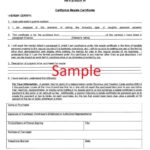Escrow accounts are very helpful for homeowners to set aside some money every month to pay property taxes and other insurance premiums. Since it’s challenging to arrange a bigger amount at once, escrow accounts act as money-savers, and mortgage lenders use this money to cover all such payments.
But, what if one day you receive an email about an unpaid tax bill? This would be the least expected thing and will definitely stress you out. Maybe your mortgage lender forgot to pay the bill even when you have an escrow account. So, what can you do with it?
Don’t worry if you are still blank on what to do. If you possess escrow accounts, keep reading this post. We have discussed what steps you should be taking to resolve this matter as early as possible.
Basics of Escrow Accounts
Contents
It is a special account that holds money for expenses such as mortgage insurance premiums and property taxes. This way, you don’t have to deal with mortgages, taxes, and insurance bills. Everything combines in one place and is split across your due payments.
The actual amount that is held in escrow accounts depends upon the insurance premiums and taxes. So, when the tax becomes due, your lender uses your escrow funds to pay taxes and insurance. This way, you won’t be burdened for the one-shot arrangement of thousands of dollars for the due payments.
The reason why homeowners prefer setting up escrow accounts is the ease of single payment each month instead of worrying about heavy taxes and insurance expenses at the end of the year. Additionally, lenders also offer incentives for setting up escrow accounts, such as low mortgage interest rates.
What to do if you are escrowing your taxes
Remember that you, as a property owner, will always receive the tax bill. You have to make sure that your mortgage lender is paying your bill.
If you escrow your taxes, take the following steps to pay your tax bill
- Look at how much money is there in your escrow account
- Send a copy of the tax bill to your mortgage lender. Your mortgage lender also receives it in electronic form.
- The following month, check the amount in your escrow account
- Confirm that the tax bill has been subtracted from your escrow balance
➡LEARN MORE: How to file a business taxes extension?
What you should do if you get a tax bill even with escrow accounts
Your mortgage lender is supposed to make insurance and tax payments timely.
If you have received a property tax bill at the end of June, which shows that your mortgage lender has failed to pay your bill, do the following steps.
- Make a copy of your tax bill and encircle the tax
- Write your loan number on the copy.
- Add a notice of the error to explain the whole situation
- Send it to your mortgage lender
- Now, make sure that they have taken action and paid your tax bill
Your servicer must acknowledge your notice of an error within five days. If the service provider forgets to make the payment, it must correct the error within 30 business days and should cover the cost of penalties due to late payment.
Also, you should notify the tax collector office as early as possible that your mortgage lender was supposed to pay the bill.
If you fail to make payment, the tax authority can lien your home, and you may have to lose your home to a tax sale. You may have to consult an attorney or a housing counselor if your mortgage lender still fails to pay the bill.





